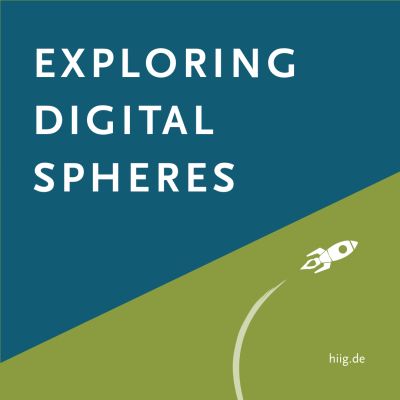Join us on a journey into the realms of our digital society: In the new season of Exploring Digital Spheres our SET-project research team travels to five different countries on three continents in order to explore the intersection of sustainability and digitalisation and talk to local experts about their endeavours. In the first season of the podcast you got to know HIIG researchers and their diverse research backgrounds. We asked them how our digital society works and what its future might look like. Every other episode, the researchers entered into a dialogue with other digital mavericks!
http://www.hiig.de/podcast-exploring-digital-spheres
Fake news and elections
How researchers tackle the problem of information manipulation strategies during election campaigns
Amélie Heldt studied French and German Law at the universities of Paris Ouest Nanterre and Potsdam. After passing the first state examination, she completed a supplementary training programme in Design Thinking at the Hasso-Plattner-Institut in Potsdam and worked in the legal department of a market-leading music label. She completed her two-year legal clerkship at the superior Court of Justice in Berlin and was working amongst others for the Stiftung Oper in Berlin (Berlin Opera Foundation), in the media and copyright area of the law firm Raue LLP and for the GIZ (German development agency) in Cambodia.
Since May 2017, she is a junior researcher and Ph.D. candidate within Research Programme 1 “Transformation of Public Communication” at the Hans-Bredow-Institute. In her Ph.D. project, Amélie Heldt focuses on the effect of the fundamental right on freedom of expression in the digital sphere.
Titled: "The difficulty of regulating fake news" and "Chers voisins d’outre-Rhin: A french NetzDG?" Amélie published two articles about the French regulatory situation regarding fake news, and one more on political micro-targeting which is all mentioned during the interview. (all articles are written in German)
Clara is a Public Law Doctoral Candidate at the Rio de Janeiro State University – UERJ. She holds a Master of Public Law diploma from the same University and an L.LM in IT, Media and Communications Law from the London School of Economics and Political Science. At the HIIG, she is focused on the regulation of online service providers, specifically regarding the combination of internet governance principles with regulatory strategies and rationales (the subject of her Doctoral thesis). She is also interested in e-governments, digital administrative law and the shaping of democratic institutions in the face of technology in general. Coming from a media and regulation background, Clara has experience working for a multimedia conglomerate, nongovernmental organizations and for the public sector, having served as legal advisor in the Brazilian Audiovisual Regulatory Agency – ANCINE. As a visiting lecturer, she has ministered technology regulation in Fundação Getulio Vargas, Rio de Janeiro and Constitutional Law in UERJ. There, she also acted as pro bono advocate for the Human Rights Clinic and is currently in the executive editing team of the law journal Publicum.
Clara wrote on the blog of the HIIG a detailed article on the fake news during the Brazilian elections.
Besides fake news, Clara and Amélie talk about media and information quality in an age of artificial intelligence. You can read more about this in an article from the Berkman Klein Center at Harvard University.
